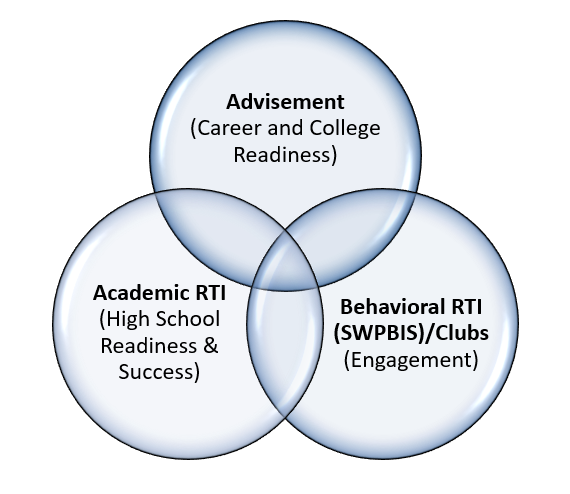Off Task Students: The Warm Demander Approach
- Best For Teachers

- Feb 4, 2025
- 3 min read

In any classroom, off-task behavior is inevitable. Students are human just like their teachers and they can become distracted, disengaged, or overwhelmed for various reasons.
However, the way educators respond to off-task behavior can either foster a stronger
teacher - student relationship or create barriers to engagement and success. This is where the concept of being a Warm Demander comes into play.
Understanding the Warm Demander Approach
A Warm Demander is a teacher who balances high expectations with deep care and support for students. This approach, grounded in culturally responsive teaching, ensures that students feel seen, valued, and challenged. A Warm Demander does not ignore off-task behavior, nor do they resort to punitive or authoritarian measures. Instead, they set clear boundaries while maintaining respect and warmth in every interaction. They are, at all times, sincere.
According to Delpit (2012), Warm Demanders effectively build relationships with students while maintaining rigorous academic expectations. This approach is particularly effective for students who may not respond well to traditional, authoritarian discipline models.
Why Positive, Productive Interactions Matter
Building Trust and Relationships – Students respond better to teachers they believe care about them. A positive interaction, even when addressing misbehavior, reassures students that the teacher is on their side and wants them to succeed (Ladson-Billings, 1995).
Encouraging Self-Reflection – When approached with respect, students are more likely to recognize their off-task behavior and self-correct. Harsh discipline may lead to resistance, but a guided conversation can help them take responsibility for their actions (Dweck, 2006).
Creating a Safe Learning Environment – A classroom that thrives on mutual respect and understanding makes students feel safe to take risks, ask questions, and engage fully in their learning (Marzano, Marzano, & Pickering, 2003).
Fostering Long-Term Behavioral Change – Quick, punitive responses may stop the immediate behavior, but they do not teach students self-management skills. Positive redirection helps students develop responsibility and accountability over time (Hammond, 2015).
Comparing Punitive Responses vs. Warm Demander Responses
To better understand the impact of the Warm Demander approach, the following table contrasts traditional punitive responses with Warm Demander responses:

Strategies for Interacting Positively and Productively
Use Proximity and Presence – Instead of calling out a student in front of the class, simply moving closer to them can serve as a non-verbal cue to refocus. For extreme behaviors, one on one student-teacher conference at lunch bell dismissal rarely fails to be affective at curbing extreme behaviors. Just be sure to maintain the Warm Demander persona.
Acknowledge Before Redirecting – Start with a personal connection before addressing the behavior. For example, "I love how curious you are, and I know you have great ideas. Let's channel that lively intelligence into our discussion, but with polite classroom protocol."
Give Clear, High-Expectation Directions – Instead of vague commands like "Pay attention," try "Let's use 100% of our brains for this activity," "I need quiet hands please," or "Let's focus on our notes for the next five minutes, and then we will discuss your thoughts."
Provide Choices and Ownership – Allow students some control over their redirection. "Would you like to work at your desk or move to the back table where it’s quieter?" gives them autonomy while keeping them accountable.
Use Playful and Encouraging Language – Instead of shutting down behavior with "Stop that," consider using phrases that disarm and engage students. For instance, responding to inappropriate comments with a surprised, "Oh my goodness!" or "Oh no!" in a playful, sincere way often elicits a smile and an immediate behavior change. This approach lightens the mood while reinforcing expectations. Many students even begin using these phrases with their peers, further reinforcing the positive culture in the classroom.
Frame Corrections in a Growth-Oriented Way – Instead of telling students to "stop" certain behaviors, encourage them to "Level Up." This term, borrowed from video game play, resonates with students who game frequently. "Leveling Up" transforms behavior correction into a challenge for self-improvement rather than a command to cease actions, making it a startup comment rather than a shutdown comment (Gee, 2003).
Follow Up with Encouragement – Once a student corrects their behavior, reinforce their efforts with positive feedback: "I noticed you really got back on track—great job staying focused! Your solutions today really added to our lesson."
Conclusion
Interacting with off-task students in a positive, productive way does not mean lowering expectations. It means holding students accountable with empathy, patience, and belief in their potential. By embracing the Warm Demander approach and incorporating engaging, playful, and student-friendly language, teachers create an environment where students feel supported, respected, and motivated to meet high expectations. Ultimately, the goal is not just classroom compliance but long-term growth and success for every student.
References
Dweck, C. S. (2006). Mindset: The New Psychology of Success. Random House.
Gee, J. P. (2003). What Video Games Have to Teach Us About Learning and Literacy. Palgrave Macmillan.
Hammond, Z. (2015). Culturally Responsive Teaching and The Brain: Promoting Authentic Engagement and Rigor Among Culturally and Linguistically Diverse Students. Corwin Press.
Ladson-Billings, G. (1995). The Dreamkeepers: Successful Teachers of African American Children. Jossey-Bass.
Marzano, R. J., Marzano, J. S., & Pickering, D. J. (2003). Classroom Management That Works: Research-Based Strategies for Every Teacher. ASCD.





Comments